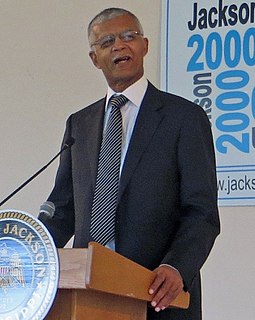A Quote by Helen H. Gardener
The most fatal blow to progress is slavery of the intellect. The most sacred right of humanity is the right to think, and next to the right to think is the right to express that thought without fear.
Related Quotes
The fundamental rights of [humanity] are, first: the right of habitation; second, the right to move freely; third, the right to the soil and subsoil, and to the use of it; fourth, the right of freedom of labor and of exchange; fifth, the right to justice; sixth, the right to live within a natural national organization; and seventh, the right to education.
Reader's Bill of Rights 1. The right to not read 2. The right to skip pages 3. The right to not finish 4. The right to reread 5. The right to read anything 6. The right to escapism 7. The right to read anywhere 8. The right to browse 9. The right to read out loud 10. The right to not defend your tastes
Even a superstitious man has certain inalienable rights: the right to harbor and indulge his imbecilities, provided only that he does not try to inflict them upon others by force; he has the right to argue for them as eloquently as he can. But he has no right to be protected from the criticism of those who do not hold them. He has no right to demand that they be treated as sacred. He has no right to preach them without challenge.
Orthodoxy, or right opinion, is, at best, a very slender part of religion. Though right tempers cannot subsist without right opinions, yet right opinions may subsist without right tempers. There may be a right opinion of God without either love or one right temper toward Him. Satan is a proof of this.



































